Post
A catch
Save a catch to start your fishing logbook. You will be able to to share it with the community if yo want!
A fishing trip
Post an ad to go fishing with other fishermen
Save a catch to start your fishing logbook. You will be able to to share it with the community if yo want!
Post an ad to go fishing with other fishermen
Share a thought, a question with the community
My favorite cities
×Join our 3 fishermen in Lake-Hill in Ulster. The fishing forecast is currently 4.3. The most caught fishes here are the black crappie, the lahontan cutthroat trout, the white bass and the channel catfish. Come try the most famous fishing techniques like the bass trolling, trolling for bonito, surfcasting or trolling for mackerel.
Our fishing forecast of Lake Hill indicates the best time to go fishing in this city.
The Black Crappie
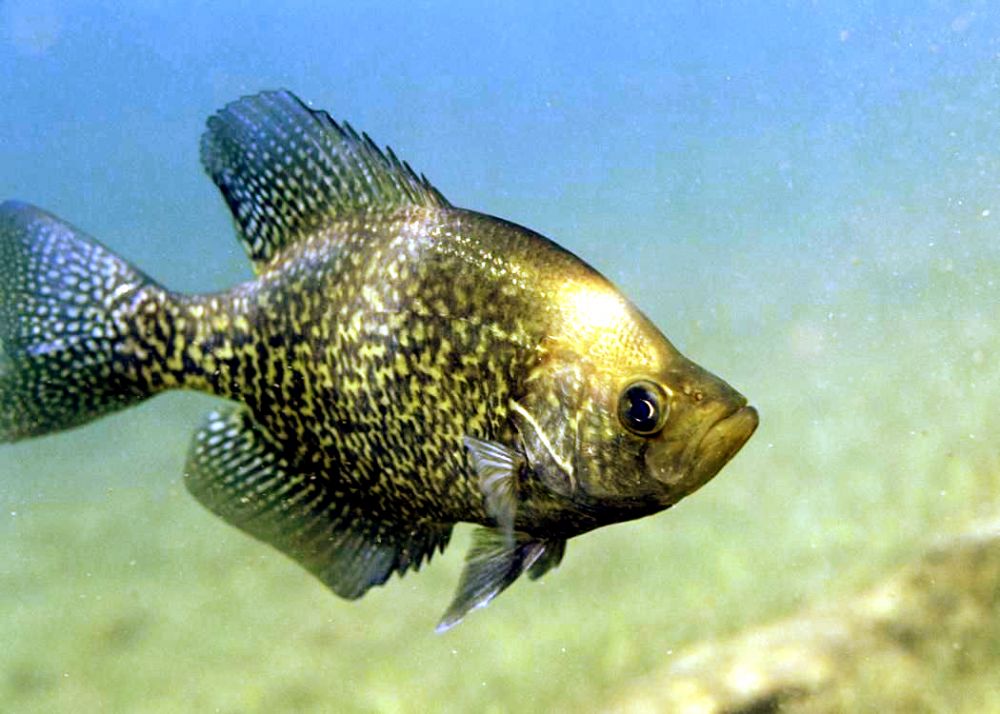
The black Crappie belongs to the Centrarchidae family. Its average length is 18 to 25 cm, up to 38 cm with a weight generally varying between 300 and 900 grams. The largest specimens can reach 1kg. The all-time record comes from Missouri with a 2.26kg black crappie, while Ontario's is 1.7kg. It breeds around the end of March. Its longevity is 7 years. It is fished in April and May. The body of this fish has the typical shape of craps and other members of the centrarchidae family, i.e. oval and flattened with thorny fins. The height of this fish represents about 33% of its length. Its color is mainly dark olive, covered with a mosaic of irregular black spots on its head, back and sometimes on its belly. The flanks are paler, but also spotty, often with silver, green or even blue highlights. The color can vary considerably depending on the environment in which the fish live. Its mouth is large, reaching to a point below the middle of the eye. The black Crappie is particularly recognizable by its large fins, which give the impression that it has sails. It has 7 to 8 spines on the dorsal fin and 6 to 7 spines on the anal fin. This is one of the main distinctions that can be made with some craps that have 10 to 12 spines on the dorsal fin. The differences between the white and black crappie are sometimes subtle. The dark spots on the black crappie are a random texture, they appear as stripes on the white crappie. The latter also has a less dark back, a longer body and, above all
The Black Crappie is a famous fish you can catch in Lake Hill.The Lahontan cutthroat trout
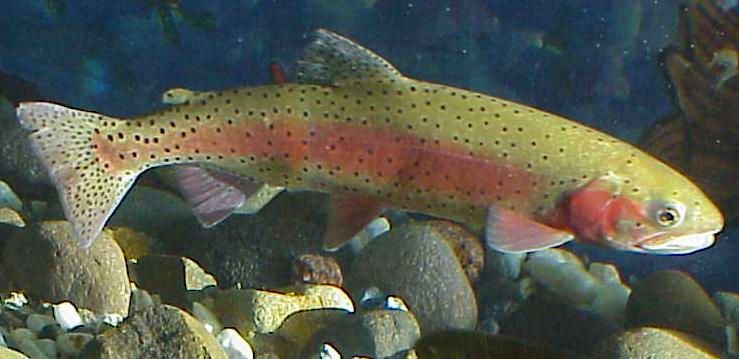
The Lahontan cutthroat trout belongs to the Salmonidae family. It can reach 1 m for 24 kg. It has a lifespan of less than 5 years. It breeds between February and July. The best time to catch it is between March and April. It is a quite large fish with a square tail to hunt prey and avoid predators. The coloring is green to greenish brown on the back, pale yellow with a pink lateral band on the sides and silver to white on the belly. Parr marks fade in mature fish. Spawning trout can be copper, red and orange, especially male. Large rounded spots, almost as black as ink, scatter little over the body, with less below the lateral line. Like other cutthroat trout, they have a distinct red to orange mark on their throats, but can be pale on lakes.
The Lahontan cutthroat trout is a famous fish you can catch in Lake Hill.The White Bass
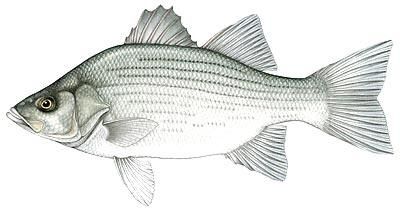
The White Bass belongs to the Moronidae family. Its maximum length is 46 cm and its maximum weight is 3.2 kg. Its maximum lifespan is 15 years. Spawning takes place from March to May. The best time to catch it is from mid-April to mid-May. As with other true basses, the dorsal fin is clearly double, separated into thorny and soft-raked parts. White Bass is a silvery shade ranging from dark grey or black on the back to white on the belly. Several incomplete lines or stripes extend horizontally on either side of the body. Adults look like a young striped bass, and the two are often confused. However, the striped bass has two distinct pieces of teeth on the back of the tongue, and the white wolf has one piece of tooth. The striped bass has two points on each cap, unlike the white bass which has one, and the second spine of the anal fin measures about half of the third spine of the striped bass, while it is about two thirds the length of the third spine in White Bass.
The White Bass is a famous fish you can catch in Lake Hill.The Channel Catfish
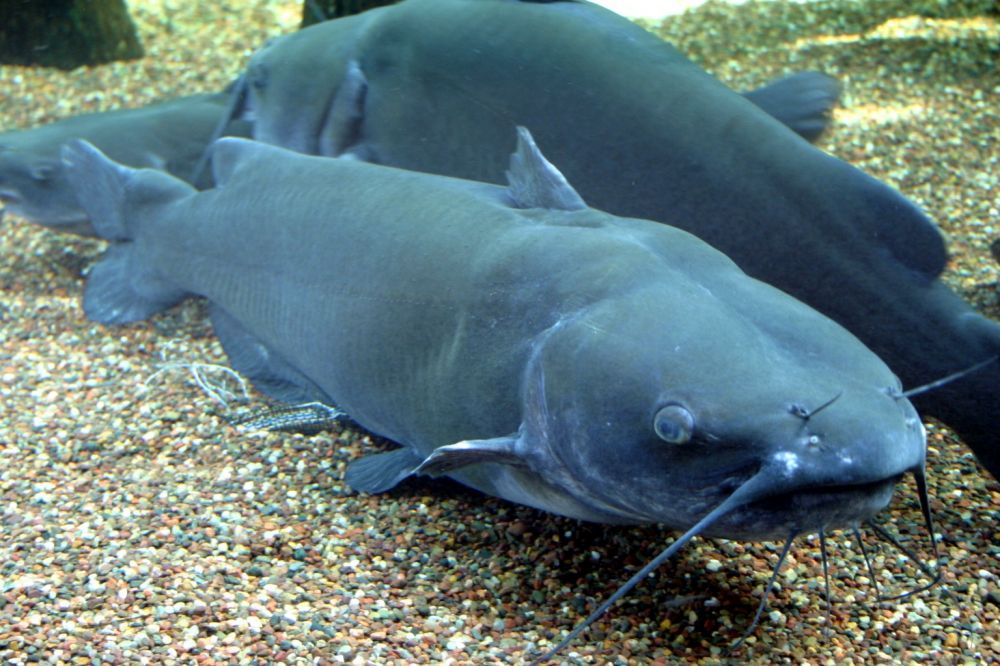
The Channel Catfish belongs to the Ictaluridae family. adults often weigh between 40 and 60 cm. The maximum weight recorded is 26.3 kg. It has a life span of 15 years. It breeds from May to July. The ideal time to fish them is from March to May, before the breeding season. The body is elongated and flattened. The eyes are small and the mouth is lesser. They have eight sensory barbells, or "whiskers", around their mouths. Four whiskers are on the chin, two on the muzzle and one at both corners of the mouth. The tail is deeply forked with the edge of the rounded anal fin. The adult color is pale grey to olive on the back and white to yellowish on the belly. The young are generally light grey at the back and silvery on the sides. The sides have scattered dark spots.
The Channel Catfish is a famous fish you can catch in Lake Hill.The Bull trout
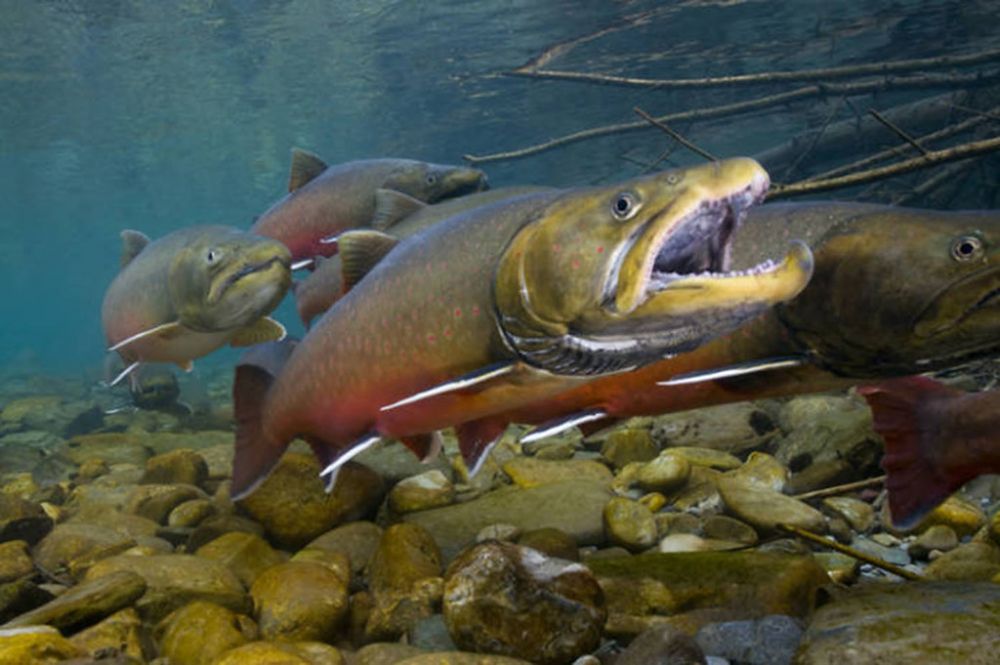
The Bull trout belongs to the Salmonidae family. It can measure up to 103 cm long and weigh up to 14.5 kg. It can live for a dozen years. It breeds from July to December. It can be fished from June to February. Like other arctic char species, the fins of a bull trout have white leading edges. Its head and mouth are exceptionally large for salmonidae, which gave it its name. Bull trout up to 103 cm long and weighing 14.5 kg have been recorded. Bull trout can be migratory, moving through major river systems, lakes and the ocean, or they can be resident and remain in the same river all their lives. Migratory bull trout is generally much larger than resident bull trout, which rarely exceeds 2 kg. Bull trout differs from brook trout (S. fontinalis) in the absence of distinct spots on the dorsal fin, as well as yellow, orange or salmon spots on the back, as opposed to red spots with blue halos on the trout stream. Bull trout do not have the deep-dug caudal fin of lake trout (S. namaycush, another Arctic char).
The Bull trout is a famous fish you can catch in Lake Hill.Our fishing forecast of Lake Hill indicates the best time to go fishing in this city.
Our fishing forecast of Lake Hill indicates the best time to go fishing in this city.
Our fishing forecast of Lake Hill indicates the best time to go fishing in this city.
